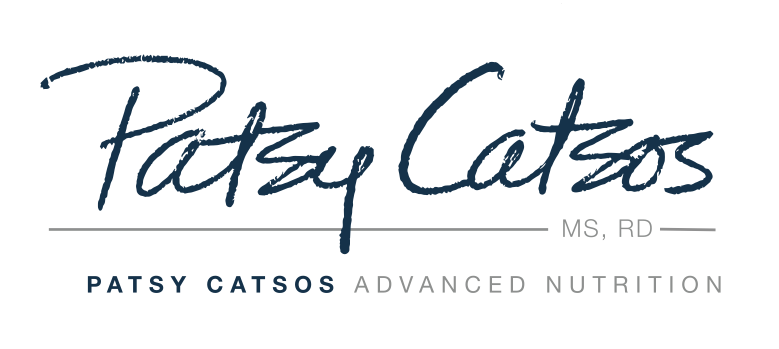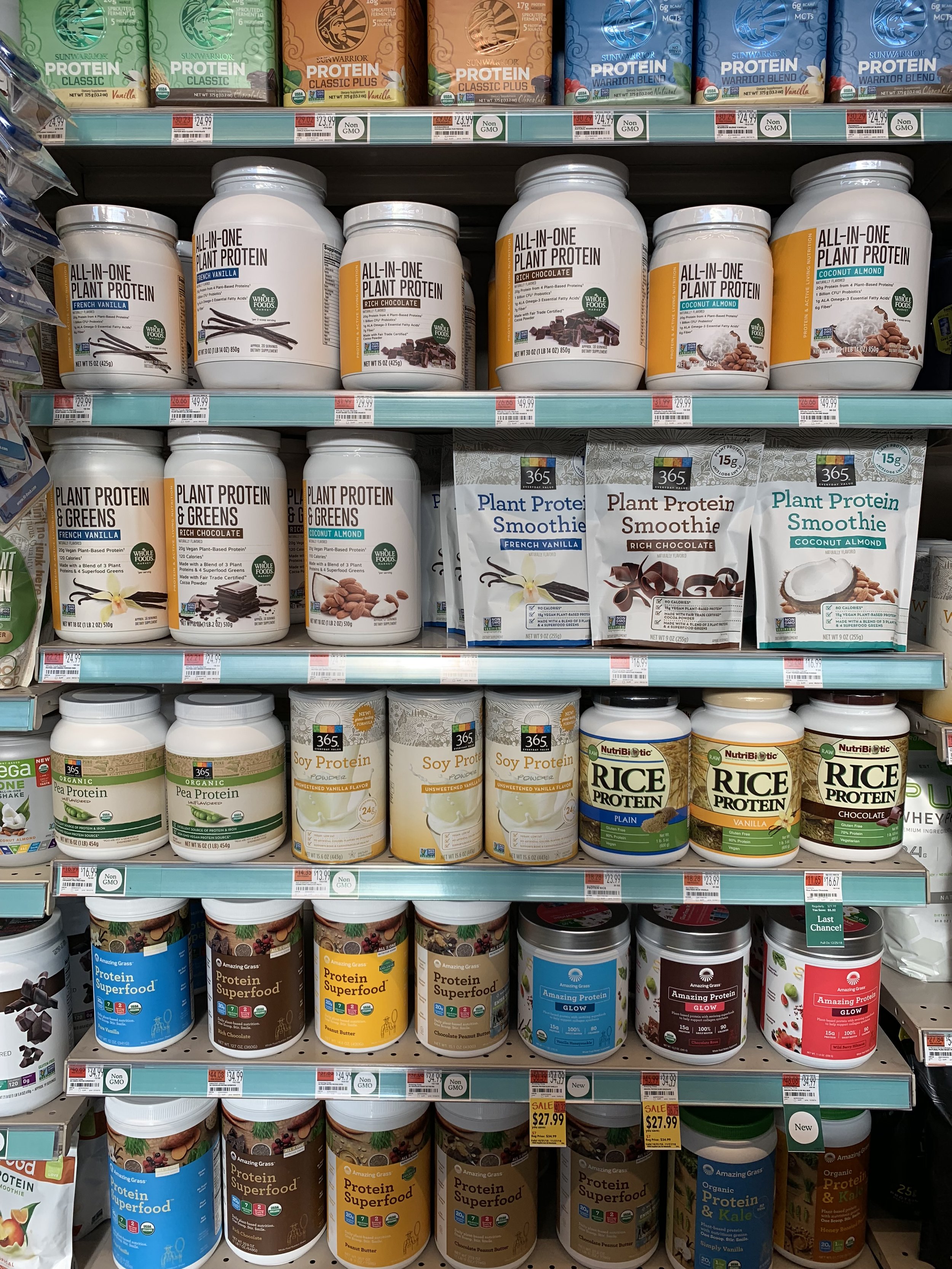So many protein powders! Which one should you choose?
Most people can easily meet their protein needs with food alone on a low-FODMAP diet because meat, fish, poultry, and eggs are high protein and low in FODMAPs. But sometimes a protein powder is called for. People who might be interested in using protein powers include athletes in training, people recovering from an illness or surgery, people who need soft or small-particle-size foods, small eaters, vegetarians, and anyone who enjoys smoothies. Smoothies and protein shakes are popular and delicious, but they can quickly become FODMAP bombs with the wrong protein powder in them.
Protein supplements are not right for some people, so please seek advice from your health care provider if you have medical conditions besides your IBS. The products discussed in this post are NOT meant to be sole sources of nutrition. They are called supplements because they are meant to be used in addition to a wide variety of low FODMAP foods and beverages.
In the past, I kept the focus strictly on FODMAPs without regard to other ingredients, but I don’t feel I can do that anymore, given the growing evidence that certain industrial food ingredients alter the gut microbiome, promote inflammation, or increase risk for inflammatory bowel disease or other diseases. In particular, I am recommend you choose products that do NOT include industrial emulsifiers, whiteners, or artificial sweeteners. The less processing the better. Always double check the list of ingredients before you buy, because product formulations can change over time.
The following protein supplements are some of my favorites; they appear to be suitable for a low-FODMAP diet based on the listed ingredients and the nutrition info provided by the manufactures' web sites, as of this writing. They have not been lab tested for FODMAPs unless so noted. Note that other flavors or products by the same companies may contain FODMAPs such as fructose, chicory root extract, or inulin. or other ingredients not suitable for a low FODMAP diet.
drink wholesome: Egg White Protein Powders and Collagen Protein Powders. I was given some free samples of the egg white protein powders and they were delicious. Egg white powder dissolves completely, has a smooth texture and tastes good. The Vanilla with Maple Sugar Protein Powder, my favorite, has real vanilla bean flavor, and is sweetened with—yes—maple sugar. I received samples of this product from the manufacturer, and I’m glad I did, because it is quite delicious. Spray-dried egg white protein powders are the closest you can get to a “whole food” low-FODMAP protein supplement. Certified low FODMAP by Monash University.
Jay Robb Egg White Protein: unflavored.
Now Egg White Protein: unflavored.
Nutricost Whey Protein Isolate Powder, plain or grassfed, plain. Whey protein isolates are lactose-free, because the processing removes the protein from the rest of the milk, leaving the lactose behind. There are many brands available. I am listing this one because it tastes good, has a lower price point and few additives compared to some other brands.
Nutribiotic Organic Rice Protein Powder: vanilla, plain, chocolate, mixed berry. Rice protein is derived from rice through an enzymatic process according to this manufacturer. Rice protein powders can be gritty, but it is a vegan option that some individuals may prefer.
Naked Nutrition Pea Protein Isolate, plain. As with whey protein isolate and rice protein isolate, this type of protein is more highly processed that egg white protein. It is another good vegan option.
Stellar Labs Vegan Protein Powder, chocolate, vanilla. This product had protein from peas, brown rice, and quinoa. It does have a very small amount of some fruit powders in it, and a few more additives than some of the other products I’ve suggested. It is Certified low FODMAP by FODMAP Friendly.
There are hundreds of protein powders on the market, and they can include any and all types of FODMAPs. I can't review them all, but here are some questions to ask yourself as you try to evaluate them
What is the source of the protein?
Egg whites are OK
Rice protein is OK
Whey protein isolate is OK
Whey protein concentrate is only OK if a lactose free claim is also made. 98% or better is probably fine for all but the most lactose-intolerant people.
Soy protein probably has FODMAPs
Soy protein isolate is an unknown. If truly an "isolate", then it would have been separated from the fiber in the soy, so might be OK.
Hemp protein made from powdered hemp seed is an unknown with respect to FODMAP status, though 2 tablespoons of the seeds themselves are low FODMAP.
Pea protein is low FODMAP.
What is the source of the sweetener?
The best option is a plain, unflavored protein powder, to which you can add a small amount of sugar or real maple syrup. And, I gotta say, we’d all be better off if we cultivated an appreciated for the light sweetness provided by the fruit in smoothies. If you must buy a sweetened product, stevia and monk fruit are the best choices at this time.
Please check out my supplement shopping page to see pictures of the products I’ve recommended. With so many protein powders on the market, it makes shopping much easier to have a visual aid.
Originally published May 29, 2024. Revised and republished on June 19, 2024.
This page may contain affiliate links. We are a participant in the Amazon Services LLC Associates Program, an affiliate advertising program designed to provide a means for us to earn fees by linking to Amazon.com and affiliated sites.

